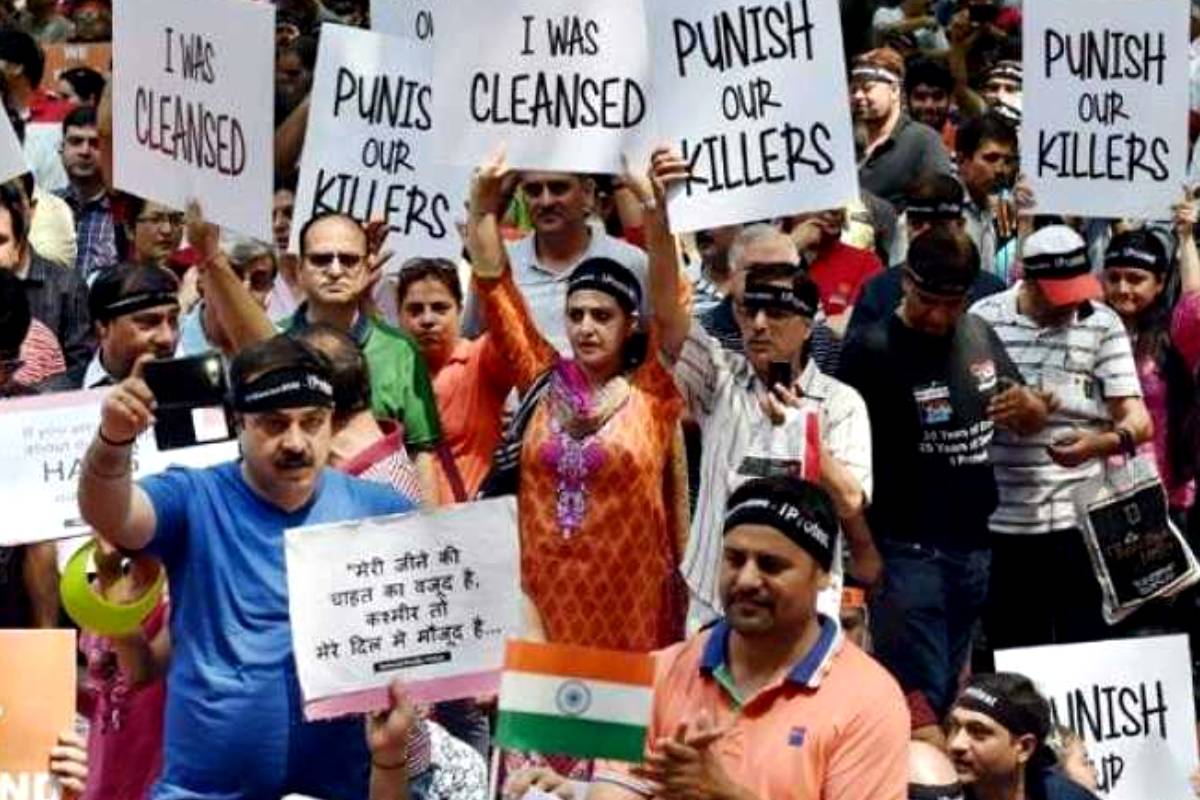SRINAGAR: A recent cultural survey by Shri Vishwakarma Skill University (SVSU) and Whetstone International Networking (WIN) has provided an in-depth, evidence-based analysis of the post-exile realities of the Kashmiri Pandit community, addressing longstanding misconceptions and presenting actionable insights.
The study refutes widely propagated claims that Kashmiri Pandits have abandoned their ancestral properties or lost interest in returning to their homeland. It revealed that 66.6% of Pandits still retain properties in Kashmir, with 48.6% adamantly refusing to sell their ancestral homes. Moreover, 62% remain optimistic about returning, identifying security and structured rehabilitation as key conditions for resettlement.
The forced exodus has left deep scars on the community. The population growth rate has dropped to 1.6 highlighting long-term demographic concerns. Relocation has caused significant shifts in family dynamics, cultural practices, and employment, with many Pandits transitioning from traditional professions to modern sectors like IT and healthcare.
KEY FINDINGS:
Cultural Preservation Threatened: The younger generation faces a loss of linguistic and cultural ties, with 37.9% rating children’s Kashmiri language skills as poor. The decline in traditional practices, including Panchang usage, signals a gradual erosion of cultural identity.
Marriage and Family Dynamics: Delayed marriages have become a pressing issue, driven by economic instability and personal ambitions. Families now opt for smaller family sizes, with an average of 1.7 children per household, further affecting the community’s demographics.
Property and Land Ownership: While most still own land in Kashmir, 74.7% report their properties are unused or non-functional, reflecting the impact of displacement on economic stability
The survey also emphasized the community’s resilience, with educational achievements serving as a cornerstone for socio-economic mobility. However, socio-political marginalization and inadequate government support have left many feeling excluded from mainstream governance and national discourse.
RECOMMENDATIONS:
The report calls for :
Secure Rehabilitation Plans: Development of group housing and infrastructure to encourage community-based resettlement.
Cultural Preservation Initiatives: Digitization of traditional texts and promotion of Kashmiri festivals, language, and rituals.
Economic Incentives: Special economic zones, skill development programs, and financial grants to revitalize the community’s presence in Kashmir.
Political Empowerment: Reservation of parliamentary and legislative seats for Kashmiri Pandits to amplify their voices in governance.
While speaking to The New Indian, Amit Raina, a member of the prominent Kashmiri Pandit group “Roots in Kashmir” said “ The extinction of the Indus Valley Civilization is a significant historical event, while the extinction of Kashmiri Pandits is a living reality. Their forced exodus has resulted in a loss of identity, economic instability, and emotional distress.”
He said “The negative population growth among this community is contributing to their potential extinction. If the government does not take action now, it will bear the responsibility for the disappearance of a 5,000-year-old community from our planet.”
He added “The findings, shared with policymakers, cultural organizations, and community leaders, underscore the urgent need for a collaborative effort to safeguard the future of Kashmiri Pandits. This survey serves as a benchmark for addressing historical injustices and creating pathways for the dignified resettlement of the community.”

